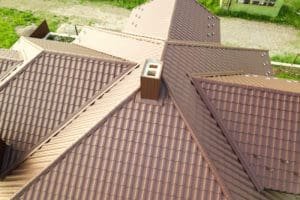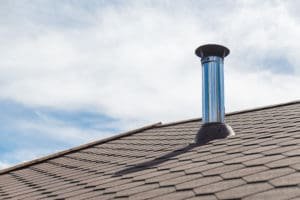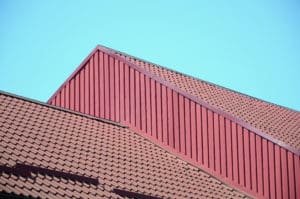Maintaining the gutters in your home may not be the most exciting task on your to-do list, but neglecting this important chore can lead to some serious consequences. Clogged gutters can cause significant physical damage to your home, as well as pose health risks to you and your family. In this article, we will delve into the function of gutters, the danger of clogged gutters, how to identify gutter clogs, and the importance of preventing and addressing them. We will also discuss the financial impact that neglected gutters can have on your property. By the end of this article, you will have a comprehensive understanding of the danger of clogged gutters and what you need to do to keep them clear and functioning properly.
Understanding the Function of Gutters
Gutters play a crucial role in maintaining the overall integrity and longevity of your home. Their primary function is to collect rainwater that falls on your roof and channel it away from the foundation. By doing so, gutters prevent water from seeping into the ground near the foundation, which can lead to costly structural damage over time. Gutters also protect your home’s exterior from water damage by preventing rainwater from dripping down the walls or pooling on the ground next to your house.
Moreover, gutters can also help prevent erosion in your landscaping by directing rainwater away from delicate plants and soil. This not only protects the aesthetic appeal of your yard but also ensures the stability of the ground surrounding your home.
The Role of Gutters in Home Maintenance
In addition to protecting your home’s foundation and exterior, gutters also play a vital role in preventing water damage inside your home. When rainwater is not properly directed away from your roof, it can seep into your attic, causing mold growth, rotting wood, and damage to your ceilings and walls. By effectively channeling water away from your home, gutters help maintain a dry and healthy living environment.
Furthermore, gutters can also help prevent basement flooding by directing rainwater away from the perimeter of your home. This is especially important in areas prone to heavy rainfall or where the water table is high, as excess moisture around the foundation can lead to water seepage into the basement.
How Gutters Work: A Basic Overview
Gutters are typically installed along the edge of your roofline and are designed with a slope to ensure that water flows smoothly toward downspouts. Downspouts are vertical pipes attached to the gutters, which carry the rainwater down to the ground and away from your home’s foundation. To function properly, gutters must be free of debris, such as leaves, twigs, and dirt, that can clog them and impede the flow of water.
Regular maintenance of your gutters, including cleaning them out at least twice a year, is essential to ensure they continue to function properly. Installing gutter guards can also help prevent debris buildup and make maintenance tasks easier. By understanding the importance of gutters and how they work, you can protect your home from water damage and maintain its value for years to come.
The Consequences of Clogged Gutters

Clogged gutters can have both immediate and long-term consequences for your home and your health. It is essential to understand these risks to prevent potential damage and keep your living environment safe.
One of the lesser-known consequences of clogged gutters is the impact it can have on the aesthetic appeal of your home. Overflowing gutters can cause unsightly water stains on the exterior walls, which can be challenging and costly to remove. Additionally, the weight of the standing water in clogged gutters can cause them to sag and pull away from the roofline, detracting from the overall curb appeal of your property.
Physical Damage to Your Home
When gutters become clogged with debris, rainwater cannot flow freely. This can result in water overflowing from the gutters, causing it to seep into your home’s foundation, basement, or crawl space. Over time, this can lead to cracks in the foundation, water infiltration, and structural instability. Additionally, stagnant water in clogged gutters can become a breeding ground for pests, such as mosquitoes, which can further damage your home.
Moreover, the excess weight of debris and water in clogged gutters can put a strain on the gutter system itself. This added stress can cause the gutters to pull away from the fascia board or become misaligned, compromising their effectiveness in channeling water away from your home. In severe cases, the weight of the debris can cause the gutters to collapse entirely, necessitating costly repairs or replacements.
Health Risks Associated with Clogged Gutters
Clogged gutters create a damp environment that promotes the growth of mold and mildew. These fungi release spores into the air, which can worsen allergies, asthma, and respiratory issues. Inhaling mold spores can also lead to eye irritation, coughing, and wheezing. Furthermore, stagnant water in clogged gutters attracts pests and can increase the risk of mosquito-borne diseases, such as West Nile virus and dengue fever.
Additionally, the presence of standing water in clogged gutters can create a breeding ground for bacteria, including harmful pathogens like E. coli. These bacteria can contaminate the air and pose a risk of infection if they come into contact with cuts or open wounds. It is crucial to address clogged gutters promptly to mitigate these health hazards and maintain a safe living environment for you and your family.
Identifying Gutter Clogs

Regularly inspecting your gutters for clogs is crucial to maintaining their functionality and preventing damage to your home. Clogged gutters can lead to a host of issues, including water damage to your roof, siding, and foundation. By staying vigilant and addressing clogs promptly, you can avoid costly repairs and ensure that your gutters do their job effectively.
When checking for gutter clogs, pay attention to not just the signs of blockages but also the overall condition of your gutters. Look for rust spots, cracks, or areas where the gutters are pulling away from the roofline. These issues can worsen over time and compromise the integrity of your gutter system.
Signs of a Clogged Gutter
- Water overflowing from the gutters during rain
- Puddles of water near the foundation
- Sagging or pulling away of gutters
- Visible debris, such as leaves and twigs, in the gutters
If left unchecked, clogged gutters can lead to water damage not only on the exterior but also on the interior of your home. Water seepage into the walls can result in mold growth and compromise the structural stability of your property. It’s essential to address gutter clogs promptly to maintain a safe and healthy living environment.
Common Causes of Gutter Clogs
Gutter clogs can occur due to various reasons, including:
- Leaves and tree debris falling onto the roof and getting washed into the gutters
- Bird nests or animal nests obstructing the gutter system
- Overflowing rain gutters depositing sediment and dirt into the gutters
- Improperly installed gutters that do not effectively channel water away
Regular gutter maintenance, such as cleaning out debris and ensuring proper water flow, can help prevent clogs and prolong the lifespan of your gutter system. Consider installing gutter guards or screens to minimize the amount of debris that enters your gutters, reducing the frequency of cleanings needed. By taking proactive steps to care for your gutters, you can protect your home from water damage and maintain its curb appeal.
Preventing and Addressing Gutter Clogs

Regular maintenance of your gutters is essential to prevent clogs and keep them in optimal condition. By following these tips, you can ensure that your gutters function properly:
Gutters are a crucial part of your home’s drainage system, directing rainwater away from your roof and foundation. When gutters are clogged with leaves, twigs, and other debris, they can’t perform their job effectively, leading to potential water damage and structural issues.
Regular Gutter Maintenance Tips
- Inspect your gutters at least twice a year to identify and remove any debris.
- Clean your gutters thoroughly using a hand trowel or a pressure washer.
- Trim tree branches near your roof to minimize the amount of debris falling onto your gutters.
- Install gutter guards or screens to prevent leaves and other debris from entering the gutters.
Regular gutter maintenance not only prevents clogs but also extends the lifespan of your gutters, saving you money on repairs and replacements in the long run.
Professional Gutter Cleaning Services
If you don’t have the time or the ability to maintain your gutters yourself, consider hiring a professional gutter cleaning service. These professionals have the necessary tools and expertise to ensure that your gutters are clean and in optimal condition.
Professional gutter cleaners use specialized equipment to remove debris and unclog downspouts, ensuring that your gutter system is free-flowing and efficient. They can also inspect your gutters for any signs of damage or wear, providing you with valuable insights into the overall health of your gutter system.
The Financial Impact of Neglected Gutters
Ignoring gutter maintenance can have significant financial implications in the long run. Neglected gutters can lead to costly repairs and decrease the value of your property.
When it comes to the cost of gutter repair versus regular maintenance, the difference can be staggering. Repairing gutters that have been severely damaged due to neglect can be an expensive endeavor. From replacing sections of the gutter system to fixing water damage caused by overflowing gutters, the costs can quickly add up. By contrast, regular maintenance, such as cleaning your gutters and addressing minor issues promptly, is relatively inexpensive and can prevent major problems down the line.
But it’s not just the repair costs that you need to consider. Neglected gutters can also have a negative impact on the value of your property. When potential buyers assess a property, well-maintained gutters can enhance its curb appeal and overall value. Clean and functional gutters give the impression that the property has been well taken care of, while neglected gutters can deter buyers and decrease the marketability of your property. So, by neglecting your gutters, you may not only face costly repairs but also a decrease in the potential selling price of your home.
Furthermore, neglecting gutter maintenance can have implications for your insurance coverage and premiums. Insurance companies may consider neglecting gutter maintenance as a form of negligence, which could affect your coverage and premiums. In the event of water damage caused by overflowing gutters, your insurance company may argue that the damage could have been prevented with regular maintenance. This could result in a denial of coverage or an increase in your premiums.
In conclusion, it is clear that neglecting gutter maintenance can have serious financial consequences. Clogged gutters pose a significant risk to your home and its value. By understanding the importance of gutter maintenance, identifying clogs, and taking proactive steps to prevent them, you can protect your property and create a safe and healthy living environment. Regular maintenance and timely repairs are the key to ensuring that your gutters remain clear and functional, saving you from potential financial burdens in the long run. Don’t underestimate the importance of proper gutter care – it’s an investment that will pay off in the long term.





